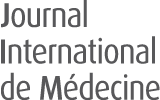Preimplantation genetic diagnosis (PGD) is used mainly in couples at high risk of transmitting a specific genetic anomaly. It involves genetic testing of embryos generated in vitro, with the aim of identifying embryos which are normal in terms of the anomaly in question and are therefore suitable for transfer. PGD is subject to different regulations, practices, professional standards and accreditation requirements across Europe. In March 2005 the Institute for Prospective Technological Studies (IPTS) of the European Commission's Joint Research Centre (JRC), the European Society of Human Genetics (ESHG) and the European Society for Human Reproduction and Embryology (ESHRE) organised a workshop on the interface between genetics and reproduction in healthcare. In the course of this event it became evident that a full picture of PGD practice and provision in Europe was needed. The lack of quality assurance for these services in general was perceived as a potential problem. Questions were raised about the impact that different regulatory frameworks between Member States (MS) might have on these services and to what extent couples were crossing borders to gain access to treatment which is not available in their own country. In response to these potential needs, IPTS, in collaboration with the European Science and Technology Observatory (ESTO), launched this study in an effort to address them and to obtain the missing knowledge on provision of PGD services in the EU. The first stage of this study was a survey of centres potentially performing PGD or offering PGD-related services in Europe. The survey identified 53 centres across Europe offering PGD, most of them located in Spain, Belgium, the Czech Republic, Greece and the United Kingdom, which suggests that patients could potentially be travelling abroad to seek PGD treatment. The main types of test offered by laboratories performing PGD included tests for monogenic diseases, cytogenetic testing for chromosomal abnormalities and sex selection for X-linked monogenic diseases, whereas “social sex selection” was found to be performed at only one centre. Interestingly, tests are also performed for adult-onset diseases such as Huntington's disease and several cancer predispositions, showing that PGD laboratories agree to look for indications which are rejected in prenatal diagnosis. Finally,
Le DPI en Europe
Copyright




